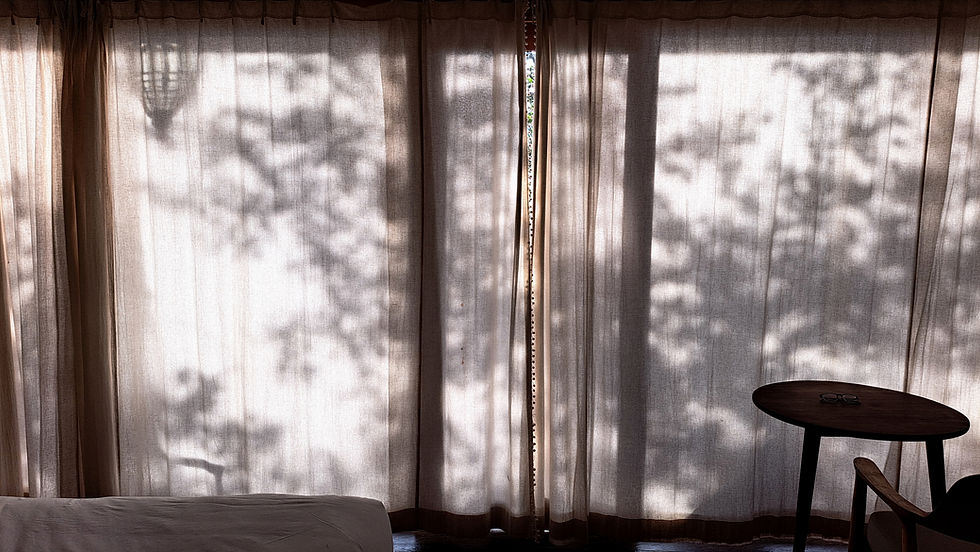letting go of what we know
- hamid ebadi
- Oct 14, 2023
- 4 min read
Updated: Oct 15, 2023
In Mysteries, Yes, a poem by Mary Oliver from her book Evidence we read:
' Let me keep my distance, always, from those
who think they have the answers.
Let me keep company always with those who say
"Look!" and laugh in astonishment,
and bow their heads. '
What is left to do once we begin to marvel at the mysteries of life is to bow our heads in reverence.
Of those who think they have the answers Lao-tzu has these words in the Tao Te King:
“He who knows does not speak, he who speaks does not know.” Some claim the standard translation of this celebrated passage is not accurate, closer to the intent of the text we should read:
"He who speaks does not know, he who knows is silent."
Of the not knowing that is speaking and of the knowing that invites to silence Wittgenstein says the following at the end of his Tractatus: “What we cannot speak about we must pass over in silence.” To pass over in silence is to let silence pass over us, overflow us.
Seldom though do we pass much over in silence for we are attached to what we know. From what we know we draw our views and beliefs which then shape our identities. But what we know is nothing more than what we think we know; a mere product of our thinking which doesn't make it right or wrong. Right or wrong and discriminative thinking cannot really frame the mind for in its essence the mind is frameless. Wisdom is not about knowing or not knowing, it is about acknowledging that our understanding is partial at best and letting go of our views which is liberating.
In this light, we need to accept that the answers we find through our inquiry into the most pressing questions about life are anything but definitive. Maybe we also need to accept that no matter how hard we try we may never find peace through a resolution we hope will come to us through those answers. To be on the path is to allow for the mirage of answers to slowly dissolve in the ever expanding horizon of questions. The mirage returns and never fully dissipates but that is in accordance with our condition of being human. That's a way we could understand Master Dogen’s : 'In aversion weeds grow, in our longing flowers fall.'
To acknowledge the provisional nature of whatever we come to understand is to realize the need to carry our insights lightly. And, by extension, recognize that the only peace given to us is to settle in the midst of what is perpetually unsettling for whatever life might offer us there is one thing she cannot give and necessarily withholds and that is the right to certanities. To give this another expression would be making sense and coming to terms with this seeming paradox; our only grounding in life can only be in groundlessness.
In one of his poems, the great Paul Celan writes: ' Wir wissen ja nicht, was gilt / We do not know what counts.' Not knowing what counts means we ultimately have no measure for that which supersedes our understanding.
In his sermons, Master Eckhart has these words: 'St. Bernard says, ‘ He who would know thee, God, must measure thee without measure.’ Without measure means standing in awe with an open hand and an open heart before the ungraspable mysteries of the universe, letting all our certainties fall away.
Without measure, opened up before the measureless provokes a sentiment of awe or shudder that the French philosopher Blaise Pascale expresses in these celebrated words: 'The eternal silence of these infinite spaces [the heavens] terrifies me. - Pensées '
Lao-Tzu again comes to mind: 'All are clear, I alone am clouded.' Clouded means the sage never departs from the darkness of the source where all light shines through.
In Plato’s Apology, in reference to Socrates, we are told: We are only as wise as our awareness of our ignorance. Rendered as the Socratic paradox this becomes: The only true wisdom is knowing you don’t know or, I know that I don’t know nothing.
Could Yates be echoing this understanding in a passage of his poem the Second Coming when he writes ?:
'The best lack all conviction, while the worst Are full of passionate intensity.’
In Zen this is simplified in this saying, drawn from a celebrated koan: Not knowing is the most intimate.
Not knowing is where our inquiry begins and where our inquiry ends. It begins without beginning and ends without ending; therein lies the path, it covers the entire earth but leaves not a trace behind.
No trace left behind is what manifests itself then as intimacy with all of life and all manifestations of life, there is a name for that in Buddhism: the myriad things.
Of this intimacy with vastness, with unboundedness that allows us to carry self and world lightly Rilke has these luminous words:
Do not fear to suffer, the heaviness give it back to the weight of the earth;
Heavy are the mountains, heavy are the seas.
The trees you planted in childhood have grown
too heavy. You cannot bring them along.
Give yourselves to the air, to what you cannot hold.
( from Sonnets to Orpheus, part one, IV)






Comments